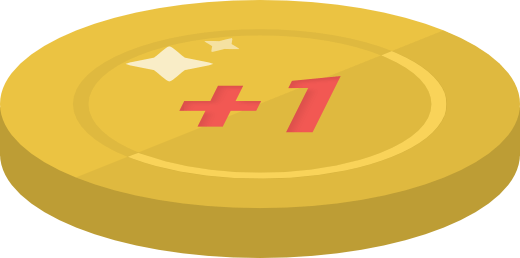|
Demonstrative Pronouns
|
|

Try again
|
try Again
Tip1:hello
|
|
Lesson 358
Demonstrative Pronouns
|
Tip
=
What are demonstrative pronouns?
A demonstrative pronoun represents or points to a thing or things:
• near in distance or time (this, these) – Is this your sister?
• far in distance or time (that, those) – Is that her over there?
Some other words: such, neither and none are also used as demonstrative pronouns.
E.g. Is X sufficient or Y? Neither is sufficient.
A demonstrative pronoun represents or points to a thing or things:
• near in distance or time (this, these) – Is this your sister?
• far in distance or time (that, those) – Is that her over there?
Some other words: such, neither and none are also used as demonstrative pronouns.
E.g. Is X sufficient or Y? Neither is sufficient.
=


Tip
=
When do we use 'this' and 'these'?
We use this (singular) and these (plural) as pronouns:
1) To talk about people or things near us:
E.g. i)This is a nice blouse.
ii)Whose plates are these?
2) To introduce people:
E.g. i)This is Nadya.
ii)These are my friends, Rio and Stanley. (Don't just say: These are Rio and Stanley. You can say: This is Gen and this is Stanley or These are my friends, Rio and Stanley)
3) To introduce ourselves to begin a conversation on the phone:
E.g. Hello, this is Nam, can I speak to Joe?
We use this (singular) and these (plural) as pronouns:
1) To talk about people or things near us:
E.g. i)This is a nice blouse.
ii)Whose plates are these?
2) To introduce people:
E.g. i)This is Nadya.
ii)These are my friends, Rio and Stanley. (Don't just say: These are Rio and Stanley. You can say: This is Gen and this is Stanley or These are my friends, Rio and Stanley)
3) To introduce ourselves to begin a conversation on the phone:
E.g. Hello, this is Nam, can I speak to Joe?
=


Tip
=
When do we use 'that' and 'those'?
We use that (singular) and those (plural):
1) To talk about things that are not near us:
• What’s that?
This is our office and that is Joe's workshop over there.
• Those are very expensive jackets.
2) We also use 'that' to refer to something someone said or did:
• A: Shall we go out to eat?
B: Yes, that’s a good idea.
• A: I am getting married!
B: That’s great!
We use that (singular) and those (plural):
1) To talk about things that are not near us:
• What’s that?
This is our office and that is Joe's workshop over there.
• Those are very expensive jackets.
2) We also use 'that' to refer to something someone said or did:
• A: Shall we go out to eat?
B: Yes, that’s a good idea.
• A: I am getting married!
B: That’s great!
=


Pick the correct option
______
These |
This |
That |
Pick the correct option
I'm Joe and ______
these |
this |
those |
Pick the correct option
______
Those |
That |
These |
Pick the correct option
______
These |
That |
Pick the correct option
______
These |
That |
Those |
Pick the correct option
Here, put ______
that |
Tip
=
Distributive pronouns
A distributive pronoun considers members of a group separately, rather than collectively. They include each, any, either, neither and others.
E.g. To each his own.
Besides distributive pronouns, there are also distributive determiners (also called distributive adjectives). The pronouns and determiners often have the same form:
i) Each went his own way (each, here is used as a pronoun, without an accompanying noun)
ii) Each man went his own way (each, here is used as a determiner, accompanying the noun man).
A distributive pronoun considers members of a group separately, rather than collectively. They include each, any, either, neither and others.
E.g. To each his own.
Besides distributive pronouns, there are also distributive determiners (also called distributive adjectives). The pronouns and determiners often have the same form:
i) Each went his own way (each, here is used as a pronoun, without an accompanying noun)
ii) Each man went his own way (each, here is used as a determiner, accompanying the noun man).
=


Pick the correct option
To each ______
their |
Pick the correct option
Joe: Do you want to eat Chinese or Italian? Nim: Either ______
is |
are |
Pick the correct option
Joe and Nim are both still out. ______
Are either |
Pick the correct option
Did you like the blue car or the red one? I did not like ______
either |
neither |
Choose the correct option:
A: Shall I sit at this end of the boat, or the other end? B: You can sit at ______
either |
both |
each |
any |
Pick the correct option
Were the boys happy after the party? Yes, they were elated! ______
Each were |
Either was |
Either were |
Pick the correct option
Nim: Which cricket team are you placing your bet on today? Stanley: I am not sure. ______
Either |
Each |
Pick the correct option
Jessica: Which route should I take: A or B? Boom: Whichever. ______
Either |
Each |
|
||||||||
|











| = |
|
|
!
|
Dengarkan
|
Tip |
|
Kata Berikutnya
|
|
Asia's largest spoken English learning platform
 Sign in with Google
Sign in with Google
 Sign in with Facebook
Sign in with Facebook
or
Please enter a valid Email ID
Username is required
Hey, looks like you are not signed up with us. Please Sign up first! Password is required Forgot password?
Create a new account
Hello English Android App learners,
Click here |

+1

